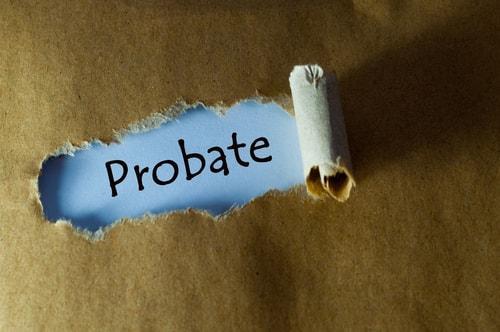Recent Blog Posts
Dissipation of Marital Assets: Knowing When Your Marriage is Breaking Down
 When a couple is getting divorced in Illinois, the law provides that all of the couple’s marital property should be divided in a manner that is fair and just. To determine a “fair and just” allocation of assets, the court will take many factors into account, including each spouse’s age, health, and employability, as well as their contributions to the marital estate. The court must also consider any claims made by either spouse against the other regarding dissipation of marital assets.
When a couple is getting divorced in Illinois, the law provides that all of the couple’s marital property should be divided in a manner that is fair and just. To determine a “fair and just” allocation of assets, the court will take many factors into account, including each spouse’s age, health, and employability, as well as their contributions to the marital estate. The court must also consider any claims made by either spouse against the other regarding dissipation of marital assets.
What Is Dissipation?
The Illinois Supreme Court established a definition for dissipation as “the use of marital property for the sole benefit of one of the spouses for a purpose unrelated to the marriage at a time that the marriage is undergoing an irretrievable breakdown.” Over the years, the state legislature has alternated between including and excluding non-marital property in its definition of dissipation. The most recent version of the law provides that only marital property can be dissipated.
How a Divorce Can Affect Your Estate Plan, Part 2: Trusts
 In Part 1 of this series of posts, we talked at length about how a divorce could impact the provisions and enforceability of a person’s will. A will, in many cases, is just one component of a comprehensive estate plan, which means that there are other estate planning instruments that could be affected by a divorce. For example, you may have established one or more trusts to protect and transfer your property to your chosen beneficiaries. The types of trusts that you have set up will determine how they are affected by your divorce.
In Part 1 of this series of posts, we talked at length about how a divorce could impact the provisions and enforceability of a person’s will. A will, in many cases, is just one component of a comprehensive estate plan, which means that there are other estate planning instruments that could be affected by a divorce. For example, you may have established one or more trusts to protect and transfer your property to your chosen beneficiaries. The types of trusts that you have set up will determine how they are affected by your divorce.
Revocable Trusts
Illinois law provides that any provisions, appointments, or nominations made regarding a person’s spouse in the person’s will are automatically revoked when a judgment of divorce is issued. The law is similar in regard to trusts but with some important differences. The differences are caused by the nature of certain kinds of trusts and the rules that apply to them.
Avoid These Mistakes During a High Net Worth Divorce
 Sources report that former NBC news anchor Matt Lauer and wife Annette Roque are likely headed for divorce. The news is not surprising considering the events of last November when Lauer, along with several other high-profile men, were accused of sexual harassment in the workplace. Lauer was fired for the alleged inappropriate behavior. Now, it appears that his marriage may also be ending. In the course of his tenure at NBC, Lauer is estimated to have made upwards of $100 million. If the couple does end up divorcing, their extravagant wealth will undoubtedly complicate the process. When high net worth couples divorce, there is much more room for expensive mistakes to be made. If you are considering divorcing your spouse and have complex assets or high net worth, read on to learn common mistakes you should avoid.
Sources report that former NBC news anchor Matt Lauer and wife Annette Roque are likely headed for divorce. The news is not surprising considering the events of last November when Lauer, along with several other high-profile men, were accused of sexual harassment in the workplace. Lauer was fired for the alleged inappropriate behavior. Now, it appears that his marriage may also be ending. In the course of his tenure at NBC, Lauer is estimated to have made upwards of $100 million. If the couple does end up divorcing, their extravagant wealth will undoubtedly complicate the process. When high net worth couples divorce, there is much more room for expensive mistakes to be made. If you are considering divorcing your spouse and have complex assets or high net worth, read on to learn common mistakes you should avoid.
Mistake No. 1: Letting Emotions Guide Your Behavior
Of course, divorce is one of the most emotional things a person can endure. It is completely understandable that spouses feel sadness, regret, anger, resentment, or even vindictiveness. However, when you allow your emotions to be the only basis for your actions during a divorce, the results can be costly. For example, some men and women are so anxious to divorce a spouse they can no longer tolerate that they agree to terms that are not fair to them. It can be tempting to agree to whatever your soon-to-be-ex wants just to hurry along the divorce process, but doing this only increases the chances that you will not receive your fair share of marital property or support. For high net worth couples, this mistake can be extremely expensive.
How a Divorce Can Affect Your Estate Plan, Part 1: Wills
 Most people recognize the importance of having an estate plan in place just in case something unexpected happens. Depending on the size and nature of your estate, a comprehensive estate plan may include a will, various types of trusts, powers of attorney, a living will, and more. Sometimes, however, the unexpected "something" can take the form of a divorce. A divorce can dramatically impact your existing estate plan, so if your marriage will soon be ending, you will need to review and amend nearly every element of your estate plan.
Most people recognize the importance of having an estate plan in place just in case something unexpected happens. Depending on the size and nature of your estate, a comprehensive estate plan may include a will, various types of trusts, powers of attorney, a living will, and more. Sometimes, however, the unexpected "something" can take the form of a divorce. A divorce can dramatically impact your existing estate plan, so if your marriage will soon be ending, you will need to review and amend nearly every element of your estate plan.
Over the next couple blog posts, we will highlight several types of estate planning tools and how they might be affected by your divorce.
Your Will
A last will and testament is one of the most basic elements of an estate plan. In your will, you are able to record your wishes regarding the distribution of your assets, guardianship of your minor children, and more. You can also name an executor who will be responsible for managing your estate during the probate process.
Sharing Important Decisions Regarding Your Child
 If you are a parent and are unmarried, separated, or divorced, you probably already know that sharing parenting responsibilities is not always easy. When parents disagree about how their child should be raised, conflict can arise which is not in the best interest of the child. Incompatible parenting styles can create unnecessary tension and complication in your family. One of the best ways to avoid conflict when in a shared parenting scenario is to sit down with the other parent and create a parenting plan or parenting agreement. A parenting plan can clearly designate each parent’s role in making important decisions about the child’s life.
If you are a parent and are unmarried, separated, or divorced, you probably already know that sharing parenting responsibilities is not always easy. When parents disagree about how their child should be raised, conflict can arise which is not in the best interest of the child. Incompatible parenting styles can create unnecessary tension and complication in your family. One of the best ways to avoid conflict when in a shared parenting scenario is to sit down with the other parent and create a parenting plan or parenting agreement. A parenting plan can clearly designate each parent’s role in making important decisions about the child’s life.
Significant Decision-Making
The term “significant decision-making” refers to “deciding issues of long-term importance in the life of a child.” The Illinois Marriage and Dissolution of Marriage Act outlines some decisions that are considered significant, including:
Clarifying the Purpose of Probate
 The term “probate” refers to the legal proceedings which deal with a deceased person’s assets and debts. The probate courts are tasked with determining the validly of the decedent’s will, if he or she has one. If he or she did not have a will, the court will need to have much more involvement in the estate administration. There is a bit of confusion about probate, and many people are not sure what exactly it is. Read on to learn the answer to the most frequently asked questions regarding the probate process.
The term “probate” refers to the legal proceedings which deal with a deceased person’s assets and debts. The probate courts are tasked with determining the validly of the decedent’s will, if he or she has one. If he or she did not have a will, the court will need to have much more involvement in the estate administration. There is a bit of confusion about probate, and many people are not sure what exactly it is. Read on to learn the answer to the most frequently asked questions regarding the probate process.
What Happens During Probate?
There are several things which typically happen during probate. If the decedent had created a will before he or she died, the judge will verify that it is a valid will. A will can be invalidated or thrown out if it is not signed by the testator (deceased person) and at least two witnesses, was forged, or if the testator created the will under undue influence. A will can also be invalidated if a newer will is discovered. Next, the judge will appoint an executor responsible for managing the estate. If the decedent had a will, the judge will appoint the individual named in the will. If there is no valid will, the judge will often appoint the next of kin as the executor. The executor is responsible for paying the deceased person’s final bills, notifying creditors of the decedent’s death, filing income taxes on behalf of the decedent, distributing assets to heirs according to the will, and more.
Does My Child Get a Say During Custody Proceedings?
 Since 2016, child custody has been formally known as the allocation of parental responsibilities in the state of Illinois. If you and your child’s other parent are involved in a dispute over how such responsibilities should be divided, you may have had several discussions with your child about the situation. In fact, your child may even very strong feelings about where he or she wants to live and how much time should be spent with each parent.
Since 2016, child custody has been formally known as the allocation of parental responsibilities in the state of Illinois. If you and your child’s other parent are involved in a dispute over how such responsibilities should be divided, you may have had several discussions with your child about the situation. In fact, your child may even very strong feelings about where he or she wants to live and how much time should be spent with each parent.
When you and the other parent cannot reach an agreement on your own, the court will be required to step in a make custody decisions for you. In doing so, the court will hear from both you and your former partner, but what about your child? Does he or she get the chance to be heard? The answer, in most cases, is yes, but the court is by no means obligated to give the child what he or she wants.
A Combination of Variables
Judges in Illinois must consider a large number of factors when deciding how to divide parental responsibilities, including each party’s health, the wishes of each parent, and each parent’s participation in past decision-making for the child. The child’s wishes are also among these factors.
How to Choose the Executor of Your Will
 Being the executor of a will is a serious responsibility. An executor is tasked with managing the estate of a deceased individual and must do so until the estate is legally closed. When choosing the executor of your estate, it is important to select someone who has integrity and is capable of fulfilling the required duties. An estate executor is responsible for paying creditors and taxes and must oversee any legal processes such as a will contest or an estate tax audit. Depending on the circumstances, the job of being an executor can last months or even years. Experts have some advice for those who are ready to choose their executor.
Being the executor of a will is a serious responsibility. An executor is tasked with managing the estate of a deceased individual and must do so until the estate is legally closed. When choosing the executor of your estate, it is important to select someone who has integrity and is capable of fulfilling the required duties. An estate executor is responsible for paying creditors and taxes and must oversee any legal processes such as a will contest or an estate tax audit. Depending on the circumstances, the job of being an executor can last months or even years. Experts have some advice for those who are ready to choose their executor.
The Importance of Having a Will – Regardless of Age
Recent surveys have shown that a staggering 64 percent of Americans do not have a last will and testament. This is quite surprising because it is one of the most fundamental estate planning tools a person can utilize. A will provides directions for how a deceased person’s property should be managed after death and can also include instructions regarding any minor children the person has. Those who pass away without a will put decisions regarding property, inheritance, guardianship of minor children, and more in the hands of the court.
Understanding the Changes to Illinois Spousal Support Laws
 In September of last year, Illinois Governor Bruce Rauner signed a measure that amended several laws related to divorce in the state. The two biggest changes pertained to the calculation of spousal support, or maintenance, as it is formally known in Illinois. The law went into effect on January 1, 2018, so if you have recently filed for divorce, it is important for you to know how your case may be affected.
In September of last year, Illinois Governor Bruce Rauner signed a measure that amended several laws related to divorce in the state. The two biggest changes pertained to the calculation of spousal support, or maintenance, as it is formally known in Illinois. The law went into effect on January 1, 2018, so if you have recently filed for divorce, it is important for you to know how your case may be affected.
New Income Guidelines
For several years, the Illinois Marriage and Dissolution of Marriage Act has provided a formula by which a divorce court is expected to calculate how much maintenance should be paid in a particular case. The formula is a weighted function of each spouse’s annual gross income designed to offer extra support in situations where one spouse makes substantially less than the other. Specifically, the law states that the amount of maintenance to be paid is found by taking 30 percent of the payor’s income and subtracting 20 percent of the recipient’s income, as long as the maintenance plus the recipient’s income did not exceed 40 percent of the couple’s combined income.
How to Seek Guardianship of a Disabled Loved One
 If you wish to be the primary caregiver of a friend or family member who is unable to care for themselves, one option which you have available in Illinois is guardianship. Guardianship can be granted by a judge to help an adult who cannot make general life decisions on his or her own. Guardian responsibilities are categorized into two groups: financial/estate responsibilities and personal responsibilities. In Illinois, there can be separate guardians for a person and their estate or the same person can look after the disabled individual’s personal needs and make estate decisions.
If you wish to be the primary caregiver of a friend or family member who is unable to care for themselves, one option which you have available in Illinois is guardianship. Guardianship can be granted by a judge to help an adult who cannot make general life decisions on his or her own. Guardian responsibilities are categorized into two groups: financial/estate responsibilities and personal responsibilities. In Illinois, there can be separate guardians for a person and their estate or the same person can look after the disabled individual’s personal needs and make estate decisions.
Guardian Qualifications
In order to become a person’s legal guardian, you must be at least 18 years old, not legally disabled, a United States resident, cognitively capable of caring for another, and free from certain prior felony convictions. If the disabled person in question wishes for you to become his or her guardian, such wishes will be considered by the court, but the court is not obligated to approve you as a guardian.















